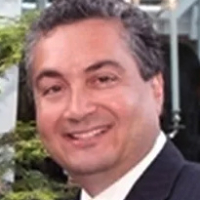 Flushing White Collar Crime Lawyers, New York
Flushing White Collar Crime Lawyers, New York
Sponsored Law Firm
-
 x
x

Click For More Info:
-
Law Office of Adrienne D. Edward P.C.
549 Summit Ave Jersey City, NJ 07306» view mapCriminal Defense & Family Law Effective Legal Strategies
Our practice is committed to serving the unique needs of every client. We strive to make you feel heard, valued, and empowered at every stage of the legal process.
201-420-8850
Sponsored Lawyers
1-10 of 29 matches
Felony, Federal, White Collar Crime
Nicholas Kaizer is a nationally -recognized expert in criminal defense, who has appeared in numerous courts around the country. He has lectured attorneys, been recognized as a top criminal defense attorney on television and has been a panelist at the U.S. Sentencing Commission annual conference, lecturing attorneys, probation officers and judges. concerning bases for non-Guideline sentences. He enjoys an A/V (exceptional) peer-review rating from Martindale rating service, a 10.0 rating from AVVO.com and is recognized as a "Superlawyer." Mr. Kaizer graduated from Boston University and the University of Miami. and is admitted in New York, Florida and the District of Columbia.
(more)Traffic, Motor Vehicle, White Collar Crime, DUI-DWI, Criminal



 Adrienne D. Edward Jersey City, NJ
Adrienne D. Edward Jersey City, NJ Practice AreasExpertise
Practice AreasExpertise


